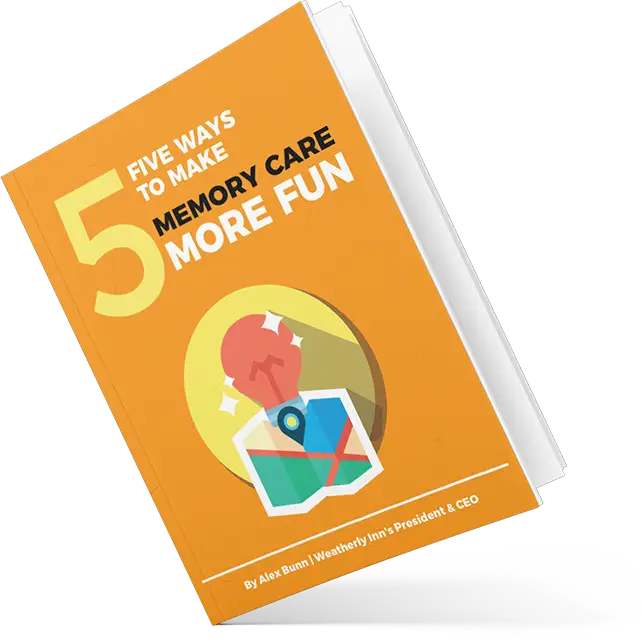June 25, 2024
Navigating through the complexities of Lewy body dementia (LBD) can be a challenging journey, both for those diagnosed and their loved ones. As awareness and understanding of this condition grow, it’s crucial to shed light on its progression through its various stages. Lewy body dementia, a type of progressive dementia, is characterized by abnormal protein deposits in the brain. These deposits, known as Lewy bodies, affect chemicals in the brain, leading to problems with thinking, movement, behavior, and mood. With an estimated 1.4 million Americans living with this disease, the impact of LBD is significant, underscoring the importance of comprehensive support and understanding for those affected. So today, we will provide a clear and detailed overview of the 7 stages of Lewy body dementia, offering valuable insights and support for those impacted by this condition.
Understanding The 7 Stages of Lewy Body Dementia
Lewy body dementia’s progression is often categorized into seven distinct stages, each marked by a series of changes in cognitive abilities, physical health, and behavioral patterns. Recognizing these stages is pivotal for providing appropriate care and support. Here’s a breakdown of what to expect during each phase:
|
Stage |
Description |
| Stage 1: No Impairment | Individuals show no signs of memory loss or cognitive impairment. Normal functioning in daily activities and social interactions. |
| Stage 2: Very Mild Changes | Subtle changes often attributed to aging or stress, with no significant impact on daily life. |
| Stage 3: Mild Impairment | Noticeable mild cognitive and physical symptoms emerge, slightly affecting complex tasks but not significantly interfering with daily life. |
| Stage 4: Moderate Impairment | Pronounced symptoms requiring more substantial support. Challenges with finances, recent memory, and complex tasks. |
| Stage 5: Moderately Severe Impairment | Significant assistance needed with daily activities. Memory loss deepens, affecting personal history and orientation. |
| Stage 6: Severe Impairment | Constant supervision required. Communication and physical mobility are significantly impaired. |
| Stage 7: Very Severe Impairment | Profound cognitive and physical decline. Full-time care needed due to loss of basic functions and communication. |
Below, we will further detail the 7 stages of Lewy’s body dementia.
Stage 1: No Impairment
During the initial stage, individuals exhibit no signs of memory loss or cognitive impairment, making Lewy body dementia virtually undetectable. This phase is characterized by normal functioning in daily activities and social interactions, with no noticeable symptoms.
Daily Life and Functioning
Individuals lead a completely normal life, engaging in work, social activities, hobbies, and family life without any hindrance. Their cognitive and physical abilities remain intact, allowing them to manage complex tasks, make decisions, and maintain their usual routines. Social interactions are unaffected, with the ability to communicate, relate, and respond as they always have.
Stage 2: Very Mild Changes
The second stage introduces very mild changes that are often attributed to normal aging or stress. People may start noticing very slight changes in their ability to recall recent events or manage complex tasks as efficiently as before. However, these changes are not significant enough to impact their daily life.
Daily Life and Functioning
The individual will continue to work, engage in social activities, and take care of their personal needs independently. The subtle changes might be attributed to normal aging or stress and do not interfere with the person’s capacity to live independently.
Stage 3: Mild Impairment
As the individual transitions into the third stage, mild cognitive and physical symptoms become noticeable. These may include slight confusion, memory lapses, and minor difficulty with complex tasks.
Daily Life and Functioning
Mild cognitive symptoms become noticeable, potentially affecting job performance, especially in demanding roles. Individuals may find learning new tasks, dealing with complex problems, or remembering recent conversations more challenging. Social interactions might require more effort, and there may be a slight withdrawal from complex social situations. However, with little to no assistance, individuals can still manage most of their daily activities, such as personal care, shopping, and simple household tasks.
Stage 4: Moderate Impairment
The fourth stage marks a turning point with more pronounced symptoms. Individuals may struggle with handling finances, remembering recent events, and managing complex tasks. This stage requires more substantial support from caregivers.
Daily Life and Functioning
The impact on daily functioning becomes more evident. Individuals may struggle with tasks that require planning, problem-solving, and remembering important information. There might be a need for assistance with managing finances, medication schedules, and complex household tasks. Social engagements may become more limited as difficulties with communication start to arise. The support of family members or caregivers becomes more crucial in navigating daily life.
Stage 5: Moderately Severe Impairment
During the fifth stage, memory loss becomes more significant, affecting knowledge of personal history and orientation.
Want to take a deeper dive? Read our Complete Guide to Memory Care for Seniors
Daily Life and Functioning
Individuals require assistance with many aspects of daily life. Personal care routines, such as bathing, dressing, and grooming, become challenging to perform without help. There’s a significant reduction in the ability to recall personal history, understand time and place, and navigate familiar environments. Engagement in social activities may decrease substantially due to the increased difficulty in communication and physical tasks. Caregiver support becomes essential for ensuring the individual’s safety, health, and quality of life.
Stage 6: Severe Impairment
The sixth stage is characterized by severe cognitive decline. Communication becomes more challenging, and physical symptoms, such as mobility issues and sleep disturbances, are more prevalent.
Daily Life and Functioning
Constant care and supervision are necessary as individuals lose the ability to perform basic activities of daily living. Communication is significantly impaired, making social interactions and expressing needs challenging. Mobility issues may require the use of mobility aids or confine the individual to a wheelchair or bed. Cognitive decline affects all aspects of daily life, necessitating a highly supportive and adaptive living environment to manage care effectively.
Stage 7: Very Severe Impairment
In the final stage of Lewy body dementia, individuals experience a profound loss of cognitive function and physical control.
Daily Life and Functioning
At this final stage, individuals require full-time care. Cognitive functions are profoundly impaired, with significant loss of speech and understanding. Physical capabilities decline to the point where individuals may be unable to walk or move without assistance, and eating and swallowing difficulties necessitate careful monitoring and adjustments to diet and feeding methods. The focus of care is on comfort, dignity, and the management of any physical discomfort or medical issues, with meaningful social interactions taking the form of non-verbal communication and presence.
Living With Lewy Body Dementia: Tips for Caregivers
Caring for someone with Lewy body dementia requires patience, understanding, and a proactive approach to managing symptoms. Here are some tips for caregivers to navigate the challenges of each of the 7 stages of Lewy body dementia:
- Stay informed about the condition and its progression.
- Create a safe and supportive environment.
- Engage in activities that promote cognitive stimulation and physical activity.
- Establish a routine to help manage behavioral symptoms.
- Seek support from healthcare professionals and caregiver support groups.
The Role of Professional Care In Managing Lewy Body Dementia
As Lewy body dementia progresses, the need for professional care and support becomes increasingly important. Specialized care facilities, like Weatherly Inn, offer tailored programs and services designed to meet the unique needs of individuals at each stage of dementia.
Weatherly Inn: Helping Your Loved One With Lewy Body Dementia
At Weatherly Inn, we understand the complexities of Lewy body dementia and the challenges it poses for individuals and their families. Our team of experts is dedicated to providing compassionate care and support tailored to each stage of the condition. With our deep understanding of the 7 stages of Lewy body dementia, we are well-equipped to offer the guidance, care, and reassurance needed to navigate this journey.
If you or a loved one are facing the challenges of Lewy body dementia, remember that you are not alone. Weatherly Inn is here to offer the care and support you need.
Take the first step in getting the care your loved one needs. Contact us or Schedule a tour.




